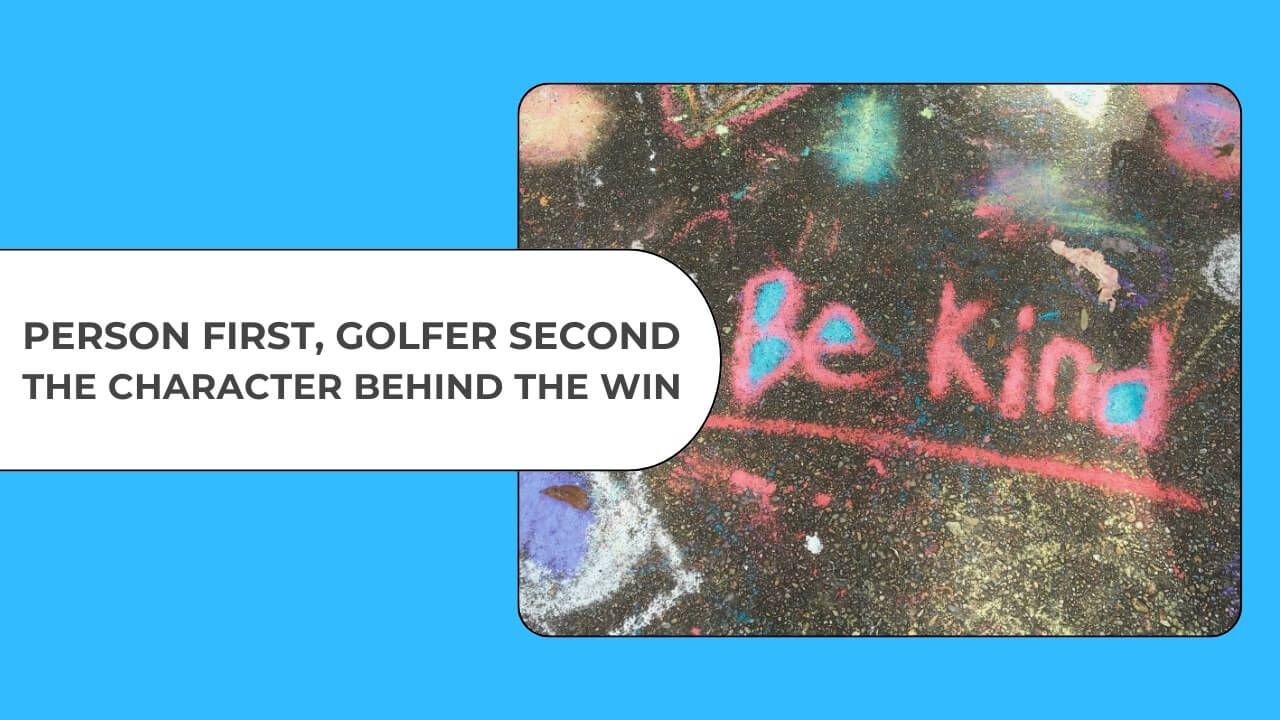#215
Sep 08, 2025
Last week Tommy Fleetwood won his first golf tournament in 164 starts.
He’s come close many times.
He’s faltered at the last few steps on occasion.
And yet, he still shows up with gratitude, humility, and compassion – loss, after loss, after loss - until he finally experiences the winning feeling.
In talking to the press about his win and what it means to him, he referred to advice he got from his parents and advice he tries to instil in his kids – try and be a good person first and a good golfer second.
Reminds me of a chapter in the book Legacy by James Kerr that refers to "a better person makes a better All Black" and Ash Barty’s comments about it "being more important to be a good person than a good tennis player".
What are they referring to and why would being a good person trump being good at your chosen profession?
Being a good sportsperson is usually about performance – skill, discipline, strategy, and execution. It’s about rankings, winnings, titles, and headlines.
Being a good person is usually about character – compassion, humility, gratitude, and respect.
It’s about how you show up whether you won or lost, how you respond in defeat and victory, how you treat others on your worst ‘performance’ days or when the camera is off.
The tension that most professional athletes face is: athletes live in a paradox.
Winning in sport demands ruthlessness and precision.
Winning in life demands compassion and generosity.
The scoreboard measures performance.
Your character measures the impact on others.
So why do some professional athletes make this distinction?
After a win, it’s a reminder that professional success shouldn’t singularly define their worth.
After a loss, it’s a way to preserve worth beyond the immediacy of the event: “I didn’t win today, but I didn’t lose myself either”.
In the long run, it’s about impact: people rarely remember the exact score, but they remember how you made them feel.
It’s also a resilience practice. If performance falters, character remains intact and can sometimes grow consequently. And perhaps that’s the deeper wisdom: the game ends, the titles fade, but who you are - if done intentionally and with responsibility, can grow.
This week's whisper?
Winning is temporary – commentary repeated by many athletes who have won numerous times.
Character expands – whether you win or lose.
Impact can be measured by moments of grace not just moments of performative greatness.
The real scoreboard isn’t lit up above the field. It’s written in the quiet stories people tell about you long after the game is over.
Reflective questions:
- When the scoreboard goes dark, what will remain?
- How do you balance being ruthlessly competitive in your craft while staying deeply human in your life?
- What stories will others whisper about you when you’ve left the field of play?
- Are you perfecting your craft or your character?


